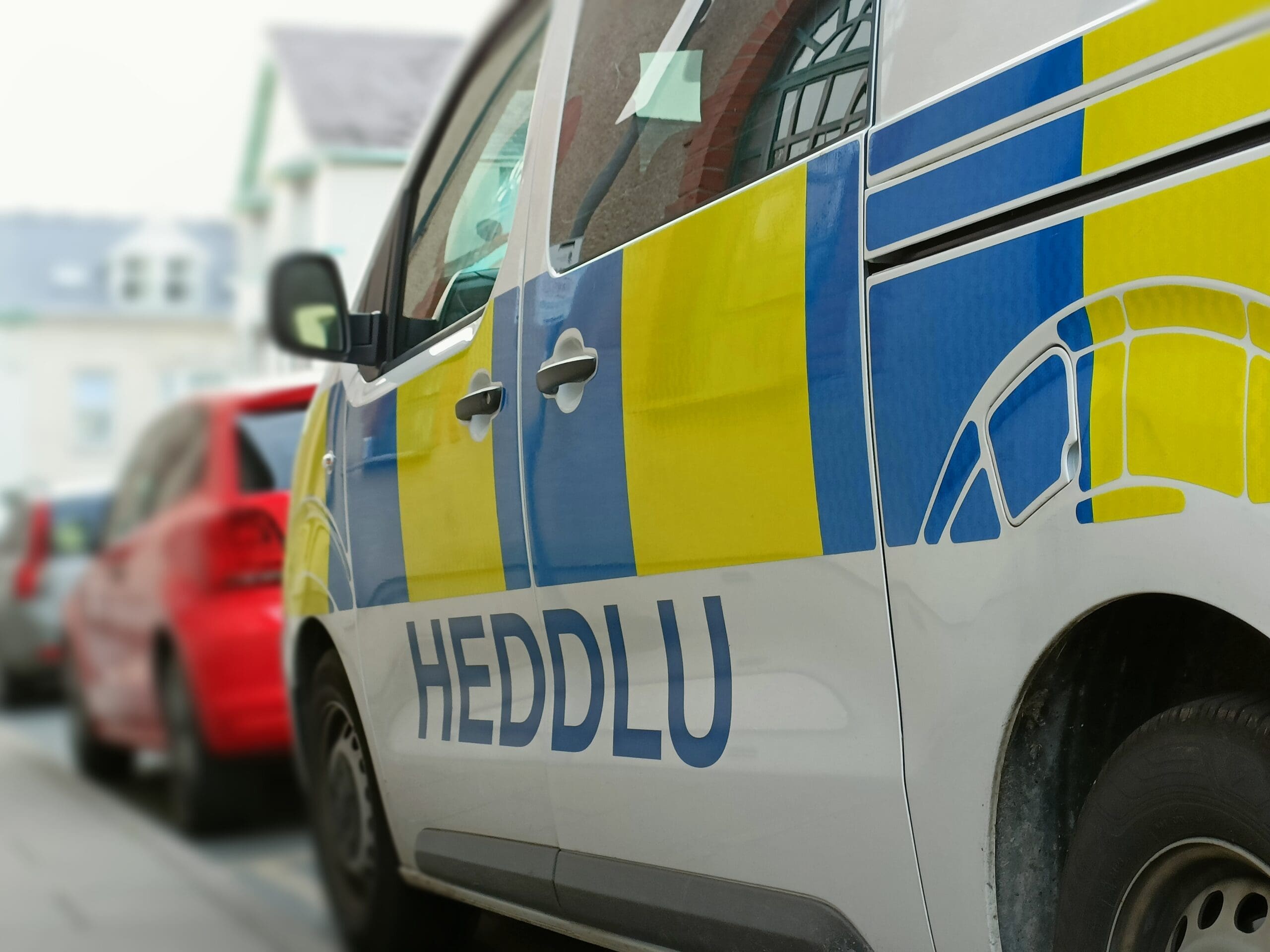News
WASPI women call on Simon Hart MP for help with compensation package

PENSIONS Minister Guy Opperman, like Simon Hart, Secretary of State for Wales have said that they have no plans to meet with WASPI campaigners.
In the latest twist for these women, Labour MP Dr Rupa Huq questioned the Government on when the last meeting between a minister and the women of WASPI was held, and when the Government next intends to schedule one.
Guy Opperman, minister for pensions, stated there had been a meeting between a minister and representatives of WASPI.
However, he acknowledged this had occurred years ago on June 29, 2016.

Jackie Gilderdale said that “The Ombudsman has been clear that the Department could be pro-active on compensation”.
“All we are asking is that Ministers meet with us to discuss a fair, fast compensation package now before more women die waiting for justice. We have lost over 220,000 women during this campaign including members of the local 1950s WASPI Women of Wales.
“The MPs refusal is ignorant. They need to remember they’re paid from the public purse, to represent their constituents”.
Rupa Huq MP, who posed the original question in Parliament, has described the Government’s response as “shocking”.
She has called for the Government to take further action on the matter for women affected.
Ms Huq added: “The DWP has already been found guilty by the Ombudsman of maladministration”.
On Saturday some 1950s women joined over 115,000 people in London at the TUC rally, demanding justice now.
Simon Hart MP/Secretary of State responded recently to one of his 1950s WASPI Women of Wales constituents who asked for his help. His opening paragraph in his response was as follows:-
“Thank you for your recent email regarding pensions and the cost of living. I’m sorry to hear that you are struggling with the increase in heating and electricity bills; I appreciate the stress it is causing in households across the country”.

Local 1950s WASPI Women of Wales Organiser, Jackie Gilderdale said: “It’s all very well that Simon Hart responded, but what does he intend to do to help the 1950s women and others during an economic crises caused by his Party, and the fat cats who profit through Tory Policies? His responses continue to be cut, copy and pasted from websites, rather than from himself”.
The Institute for Fiscal Studies stated today that as a result of increasing the state pension age from 65 to 66 the income poverty rate of single people aged 65 rose by 22 percentage points, from 16% to 38%; the income poverty rate of 65-year-olds with at most GCSE-level education rose by 21 percentage points, from 14% to 35%; the income poverty rate of 65-year-old renters rose by 24 percentage points, from 22% to 46%.
The rise in the state pension age from 65 to 66 led to larger increases in income poverty rates among those affected than the increases in poverty rates seen following earlier rises in the female state pension age. This is due to a growing gap in state support over time for those just above and just below the state pension age, together with the fact that people are more reliant on state support at older ages as fewer people are in paid work.
With lower state benefits and higher tax revenues from employment, the increase in state pension age from 65 to 66 boosted the public finances by £4.9 billion per year, equivalent to around a quarter of 1% of national income, or 5% of annual government spending on state pensions. The benefit to the exchequer is the key counterpart to the reductions in household incomes caused by the reform.
Jackie said that “just to make it clear, the national insurance fund has a surplus of approximately £30 billion and that surplus has been generated by the women who have paid national insurance. All we ask is that the 1950s women are given what they are entitled too – after all they’ve paid into the system for decades. The state pension should be seen as a right, but the Government have changed the terms and conditions of that right without consulting the 3.6 million women affected! 12 months ago the Government and DWP were found guilty of maladministration and now we await the findings of stages 2 and 3, so these women can be rightfully compensated”.
Community
Councillor meets chief constable to address Monkton and Pembroke concerns

COUNTY COUNCILLOR Jonathan Grimes has met with the new Chief Constable of Dyfed-Powys Police to discuss crime, antisocial behaviour and wider community issues affecting residents in Pembroke and Monkton.
Cllr Grimes, who represents Pembroke St Mary South and Monkton, said the meeting followed his invitation for senior police leaders to visit the area and hear first-hand about local concerns.
The Chief Constable, Ifan Charles, attended alongside officers from the Pembroke Neighbourhood Policing and Protection Team, meeting the councillor in Monkton for what were described as open and constructive talks.
As part of the visit, they also spoke with Monkton Priory Community Primary School headteacher Dylan Lawrence and Danny Nash from Pembrokeshire County Council Housing Services to gather views from education and housing professionals.
Discussions covered a range of issues raised by residents, including domestic abuse, drug and alcohol misuse, antisocial behaviour and environmental concerns such as littering, dog fouling and dangerous or inconsiderate driving.
Cllr Grimes acknowledged recent police successes, particularly in tackling drug-related activity, but said enforcement alone would not solve the area’s challenges.
He said closer cooperation between the police, council services, schools and the wider community would be needed to deliver longer-term improvements.
The councillor added that he plans to encourage residents to form a local community group in the coming weeks, aimed at developing practical solutions and strengthening partnership working across the area.
Crime
Man guilty of threatening to kill Herald editor

13-minute abuse call followed Facebook contact – defendant warned over behaviour in court
A PEMBROKE man has been found guilty of threatening to kill the editor of the Pembrokeshire Herald during a prolonged and abusive phone call, and of a racially aggravated public order offence committed when police arrested him.
Anthony Jones, 34, of Castle Quarry, Long Mains, Monkton, was convicted of both charges following a trial at Haverfordwest Magistrates’ Court on Monday (Feb 2).
Magistrates heard the threats followed publication of an online Herald article about fly grazing and loose horses on roads in the Monkton area of Pembroke — a story raised with the newspaper by local county councillor Jonathan Grimes.
Facebook approach before call
Editor Tom Sinclair told the court he was first contacted via Facebook Messenger by a profile operating under the name “Excellence Cleaning”.
The account claimed to have information about the horses’ ownership and repeatedly asked for a direct phone number.
Mr Sinclair said he initially offered the office landline but was pressed for his mobile number instead.
Within minutes of providing it, he received a call from a withheld number at around 5:52pm.
Police later traced that number to Jones.
“On a different level”
Mr Sinclair told the court the call lasted around 13 minutes and consisted of sustained verbal abuse and threats.
He said the caller repeatedly swore at him, demanded that the Facebook article be removed, and made threats of death towards him. The caller also mentioned Cllr Grimes and threatened him as well.
Giving evidence, Mr Sinclair said: “I often receive complaints and quite aggressive calls as part of the job, but this was on a different level.”
He said he believed the threats were genuine and intended to intimidate.
After the call ended, he consulted colleague Bruce Sinclair and Cllr Grimes before contacting police.
Screenshots of the Facebook messages and the mobile phone call log were later provided to officers as evidence.
Sinclair said in evidence that he sat in his car, parked outside his house for several hours that night, keeping watch to protect his family.
“I did not take the decision to give evidence today lightly, it is because I believe that it is important that the news can be printed without fear or favour, and that journalists should not have to be bullied or threatened for just doing their jobs.”
Courtroom outburst
Jones did not give evidence in his own defence.
His solicitor told the court he accepted making the call but denied that the contents were threatening.
While Mr Sinclair was giving evidence, Jones shouted from the dock, calling him a liar. Magistrates immediately warned him about his behaviour.
After the guilty verdicts were delivered, the chairman of the bench told Jones he was lucky not to face a separate contempt of court charge because of his conduct during the hearing.
Arrest incident
The court also heard that when officers attended to arrest Jones in connection with the threats, he used threatening and abusive language towards a police officer, PC Stuart Gray.
That offence was found to be racially aggravated and to have caused harassment, alarm and distress.
Sentencing pending
Jones was found guilty on both counts.
He was released on conditional bail and will return to court later this month for sentencing, once pre-sentencing reports are completed.
Crime
Arrest made after Carmarthen park stabbing investigation

Police thank community and media following public appeal to trace suspect
AN ARREST has been made following last week’s stabbing in Carmarthen that triggered a major police search and public appeal.
Dyfed-Powys Police confirmed the development on Monday after officers spent several days carrying out extensive searches around Carmarthen Park and surrounding areas.
The force had been trying to locate 57-year-old James McKenna in connection with an attempted murder after a woman was attacked inside the park on Thursday afternoon.
Detective Chief Superintendent Ross Evans said: “We would like to thank the media and our communities for assisting our investigation so far.”
The incident happened shortly after 4:00pm on Thursday when a woman was injured inside the park and managed to escape through the Picton Terrace entrance to raise the alarm.
Emergency services, including the Welsh Ambulance Service, attended and the victim was taken to hospital with stab wounds. Police have since confirmed she is expected to make a full recovery.
Over the weekend, officers carried out forensic examinations and systematic searches of the park, nearby allotments, wooded areas and along the River Towy. Specialist teams, including dog handlers and drone pilots, were deployed as part of the operation.
A knife believed to have been used in the attack and a rucksack were recovered during the searches.
Police have not yet released further details about the arrest or any charges.
Officers previously thanked local residents for their patience during road closures and visible policing in the area, and say enquiries remain ongoing.
Anyone with information is still urged to contact police on 101 or anonymously via Crimestoppers.
-

 Health4 days ago
Health4 days agoConsultation reveals lack of public trust in health board
-

 News5 days ago
News5 days agoCaldey still unsafe, survivors warn — despite Abbey’s reform claims
-

 Community5 days ago
Community5 days agoPembrokeshire students speak at national Holocaust Memorial Day event
-

 Entertainment6 days ago
Entertainment6 days agoRapunzel brings festive magic to Torch Theatre
-

 Crime6 days ago
Crime6 days agoMan denies murdering brother as jury hears of ‘ferocious attack’ at Morriston flat
-

 News5 days ago
News5 days agoKurtz raises Gumfreston flooding in the Senedd as petition deadline nears
-

 Community7 days ago
Community7 days agoStorm Chandra: Morning impacts across Pembrokeshire
-

 Education5 days ago
Education5 days agoAttendance concerns at Milford School reflect wider issue raised at the Senedd

























